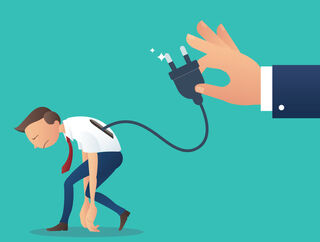Burnout
Failure and Burnout Are Tough on Men
Burnout is becoming a problem for men worldwide.
Posted May 3, 2022 Reviewed by Abigail Fagan

The press coverage during the pandemic reveals a limited discussion of overworked men. A symptom of masculinity, for some, is a constant need to be in control, have power over any circumstance, and be successful. Men don’t get a break from these continuous demands. Despite increasing flexibility in gender roles, men are often held to an unrealistic standard. The pandemic gave too little attention to the problem. Articles often focused on women; nurses and burnout were in the news, but not truckers and burnout.
Unlike diagnosable conditions such as depression and anxiety, many people have experienced burnout. According to a 2021 survey, 52% of U.S. workers were experiencing burnout, an increase of 9% from pre-covid numbers. In addition, those who work over 40 hours a week are six times more likely to develop burnout. With longer working hours becoming the norm since the Covid pandemic, it is no surprise that burnout is becoming a problem for men worldwide.
Research defines burnout as a syndrome with three factors: exhaustion, cynicism, and a sense of ineffectiveness. It is common for women to report fatigue, and men claim they become more cynical. Cynicism is also referred to as depersonalization, distancing from emotion. It also implies a sign of competence: male-coded cultural archetypes such as the demanding coach or the brusque physician. Men can develop a feeling of pessimism and irritability that can seep into other areas of life, such as relationships. Depersonalization is the experience of feeling unreal, detached, and often unable to feel emotion, which would be stressful and upsetting for anyone. This can lead to inefficiency and a lack of productivity which further increases the prevalence of the previous symptoms. However, men find it harder to recognize signs of inefficiency in their work compared to women, possibly because men do not have the same health literacy as women.
Men still encounter the stereotype of breadwinner and being able to support a family. The Pew Research Center reported in 2017 that 71% of Americans thought this was important for a man to be a good husband. The way men burn out as fathers is also driven by the breadwinner ethos.
It is time to give men a break from these unrealistic and detrimental expectations. Men need to be supported to take care of themselves and have the freedom to admit when they are at their limit and seek help.


